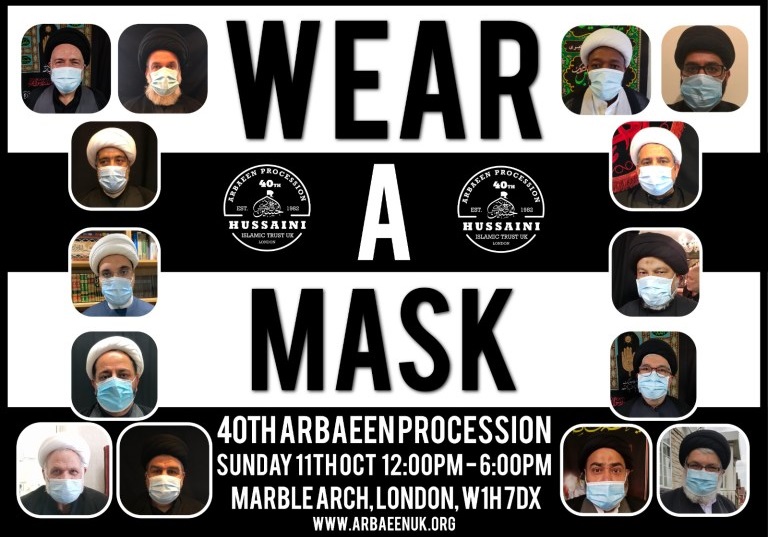From a modest beginning on a chilly day in central London in 1982, the Arbaeen march in the British Capital has grown into this.
Every year, thousands of Muslims and non-Muslims in the UK mark the fortieth day after the martyrdom of Imam Hussein, the embodiment of a universal moral law. In masks and gloves, undeterred by the pandemic, these mourners say they’re here to mark one of the most significant martyrdoms in human history and to uphold the values Imam Hussein and his 72 companies gave up their lives for on the desolate plains of Karbala 1,300 years ago.
The slayings were carried out on the orders of a tyrannical ruler named Yazid in October of 680 AD. And Imam Hussein’s uprising and refusal to pledge allegiance to him, these mourners say, informs their call for justice for nations and communities downtrodden by the likes of Yazid in the modern era.
Among the other invaluable lessons from the battle of Karbala, those from the Imam’s sister, Seyedeh Zeinab, and the critical role she played in making sure the narrative of the horrific events wasn’t hijacked by the cruel regime of the time.
To these mourners who’ve gathered here today, Arbaeen is a spiritual journey with a crucial political message, that reverberates into the 21s century, one of standing up to tyranny and of speaking truth to power no matter the consequences.

